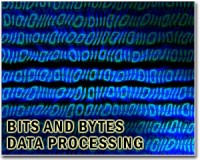 |
Frankfurt (AFP) Jan 5, 2010 Around 30 million high-tech German bank cards could leave owners high and dry, bank associations warned Tuesday as the feared Y2K computer bug cropped up 10 years later than expected. The problem that hit cardholders trying to use cash machines or make payments throughout Germany and abroad stems from computer chips unable to recognise the year 2010, and could take up to a week to resolve, the DSGV savings and regional banking association said in a statement. A global alert had gone out 10 years ago amid widespread fears of a similar problem, dubbed Y2K for the year 2000. More recent cards that contain a computer chip designed to provide extra security have been affected while older ones with just a magnetic strip on the back appear to work normally. DSGV said around 20 million "electronic cash" (EC) cards, also known as "girocards," and 3.5 million classic credit cards issued by its members had been affected. EC cards are direct debit instruments which do not allow owners to buy on credit. The world's biggest chip card maker, the French group Gemalto, is the cause of the problem, two German newspapers, Handelsblatt and the Koelner Stadt-Anzeiger, reported in their editions to appear Wednesday. According to Handelsblatt, Gemalto knows it issued defective cards. "The problem also surfaced with our cards," Christoph Siegelin, Gemalto's marketing director, told the paper. The private bank association BDB said some 2.5 million of its cards had been hit, and the BVR association added that four million cards issued by Germany's cooperative banks had also been partially touched by the problem. Around 93 million EC cards currently circulate in Germany, where cash is also a widely used form of payment. Among the country's private banks, a Commerzbank spokeswoman said just some of its cards had been affected and that many of its machines had already been adapted to accept those in question, but did not provide detailed figures. Postbank, which has the biggest retail banking network in Germany, declined to say to what extent it had been hit. "Deutsche Bank clients do not have a problem," a spokeswoman for the biggest German bank told AFP. DSGV said that the bug, which it termed a delayed "Year 2000 problem", should be completely eliminated "by next Monday", but that "withdrawal restrictions" on some credit cards were still possible until then. "The use of EC cards and not credit cards is recommended at cash machines until further notice," the DSGV said, adding that it was "working intensively" to resolve the problem. Around 25,700 of its machines have been repaired, DSGV said, but roughly one third of all payment terminals in the country were reportedly still affected on Tuesday. German stores are equipped with around 600,000 such terminals. Payment problems were also reported meanwhile by Germans who were on holiday outside the country. Europe took its latest step towards a harmonised electronic payment system in November with the Single Euro Payments Area (SEPA), a direct debit network that covers 32 countries.
Share This Article With Planet Earth
Related Links Space Technology News - Applications and Research
 Curtain falling on 'Digital Decade'
Curtain falling on 'Digital Decade'Washington (AFP) Dec 27, 2009 While it got off to a rocky start with the overhyped Y2K bug and dotcom bubble, the era dubbed the "Digital Decade" by Microsoft's Bill Gates has turned out to be a dizzying period of innovation. "It's been an amazingly vibrant decade for the Internet and for digital things in general," said John Abell, New York bureau chief of Wired magazine, which has chronicled the technological leaps and bounds of the past 10 years. "People simply don't exist in a non-digital world at all," Abell told AFP. "Even grandmothers and Luddites all have tools and devices - even if they don't realize they're using them - which connect them to a digital world." ... read more |
|
| The content herein, unless otherwise known to be public domain, are Copyright 1995-2009 - SpaceDaily. AFP and UPI Wire Stories are copyright Agence France-Presse and United Press International. ESA Portal Reports are copyright European Space Agency. All NASA sourced material is public domain. Additional copyrights may apply in whole or part to other bona fide parties. Advertising does not imply endorsement,agreement or approval of any opinions, statements or information provided by SpaceDaily on any Web page published or hosted by SpaceDaily. Privacy Statement |